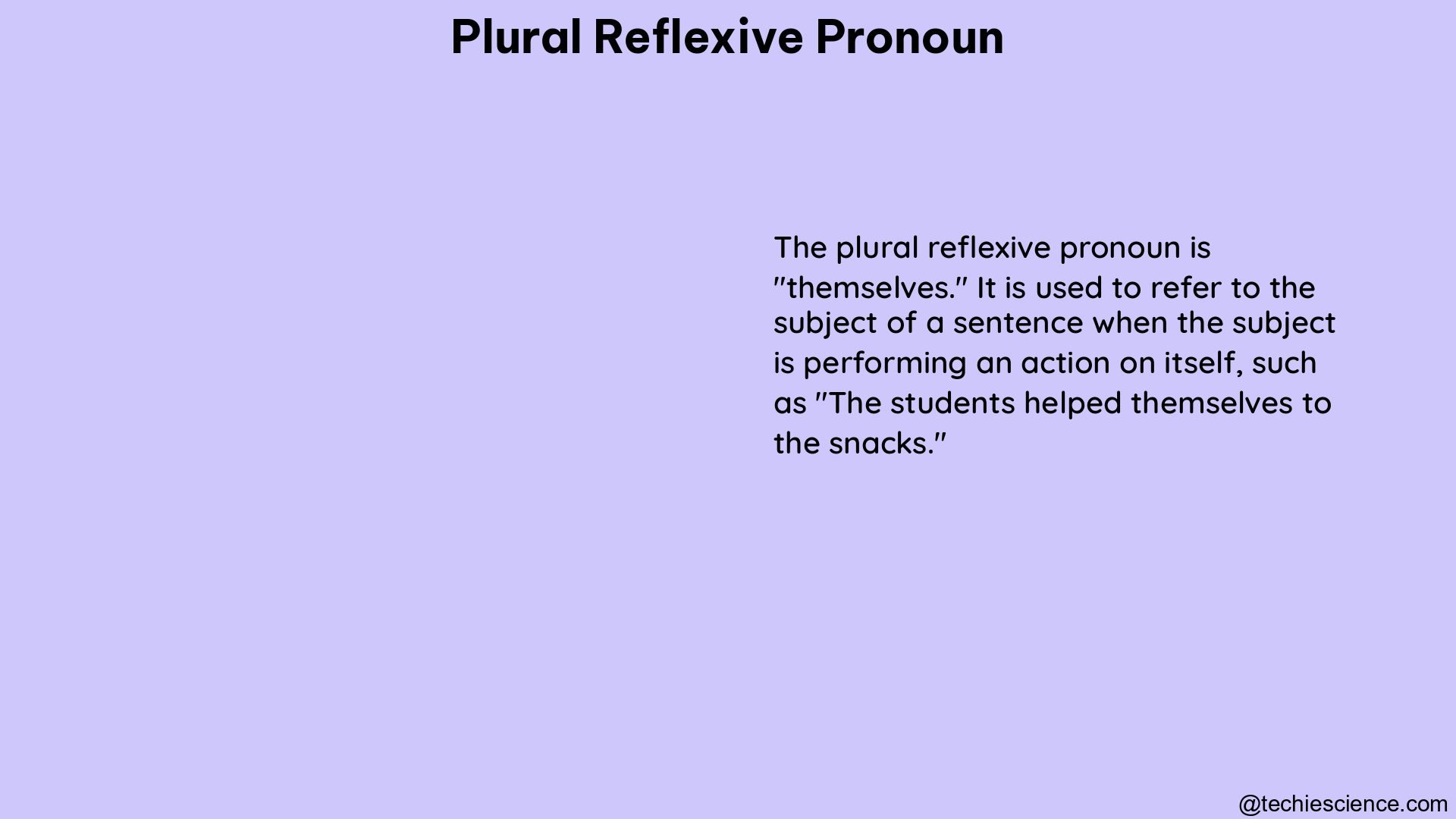Plural reflexive pronouns are a crucial aspect of English grammar, used to indicate that the subject and object of a sentence are the same. These pronouns, such as “ourselves,” “yourselves,” and “themselves,” play a vital role in conveying precise and unambiguous meaning. In this comprehensive guide, we will delve into the intricacies of plural reflexive pronouns, exploring their grammatical specifications, usage examples, and key points to remember.
Understanding Plural Reflexive Pronouns
Plural reflexive pronouns are used when the subject and object of a sentence are the same, and the subject is plural. These pronouns differ from their singular counterparts by ending in “-selves” instead of “-self.” The three main plural reflexive pronouns are:
- Ourselves (first person plural)
- Yourselves (second person plural)
- Themselves (third person plural)
Grammatical Specifications of Plural Reflexive Pronouns

Plural reflexive pronouns can serve various grammatical functions within a sentence, including:
Direct Object
Plural reflexive pronouns can be used as direct objects when the object is the same as the subject of the verb.
- We are going to help ourselves.
- You should help yourselves.
- They are going to help themselves.
Indirect Object
Plural reflexive pronouns can also be used as indirect objects when the indirect object is the same as the subject of the verb.
- We brought ourselves something to eat.
- You should pour yourselves a drink.
- They had to cook for themselves.
Object of a Preposition
Plural reflexive pronouns can be used as the object of a preposition when the object is the same as the subject of the verb.
- They had to cook for themselves.
- We are going to walk by ourselves.
Intensive Use
Plural reflexive pronouns can be used intensively to emphasize the person or thing being referred to.
- We ourselves are going to handle this.
- You yourselves are responsible for this.
- They themselves are going to fix it.
Key Points to Remember
- Themselves is traditionally plural but is sometimes used in a singular sense, leading to the debate about using themself in singular contexts.
- Ourself is an old-fashioned and rarely used version of ourselves, typically used in the royal “we” context.
- By followed by a reflexive pronoun creates a prepositional phrase meaning “without help from anyone else” or “alone.”
Advanced Considerations
Singular “Themselves”
The use of “themselves” in a singular context has been a topic of debate among grammar enthusiasts. While traditionally “themselves” is considered a plural pronoun, some argue that it can be used in a singular sense to avoid gender-specific pronouns like “he/she” or “him/her.” This usage, however, remains controversial and is not universally accepted.
Reflexive Pronouns in Other Languages
Reflexive pronouns are not unique to English; they exist in many other languages as well. For example, in Spanish, reflexive verbs are commonly used, and the reflexive pronouns “me,” “te,” “se,” “nos,” and “os” play a crucial role in their formation. Understanding the similarities and differences in the use of reflexive pronouns across languages can provide valuable insights for language learners and multilingual individuals.
Conclusion
Mastering the use of plural reflexive pronouns is essential for clear and precise communication in English. By understanding the grammatical specifications, usage examples, and key points surrounding these pronouns, you can enhance your language skills and effectively convey your intended meaning. Remember to practice using plural reflexive pronouns in various contexts to solidify your understanding and become a more confident and proficient English speaker.
References
- EnglishClub. (n.d.). Reflexive Pronouns | Learn English. Retrieved from https://www.englishclub.com/grammar/pronouns-reflexive.php
- Centro MundoLengua. (2024). Reflexive verbs in Spanish. Retrieved from https://centromundolengua.com/reflexive-verbs-in-spanish/
- Scribbr. (2023). Reflexive Pronouns | Examples, Definition & List. Retrieved from https://www.scribbr.com/nouns-and-pronouns/reflexive-pronouns/

Hi…..I’m a graduate with a Bachelor’s degree in English Literature. I wish to do a Masters in the same field someday and continue my career in Academia.
Let’s connect through LinkedIn: